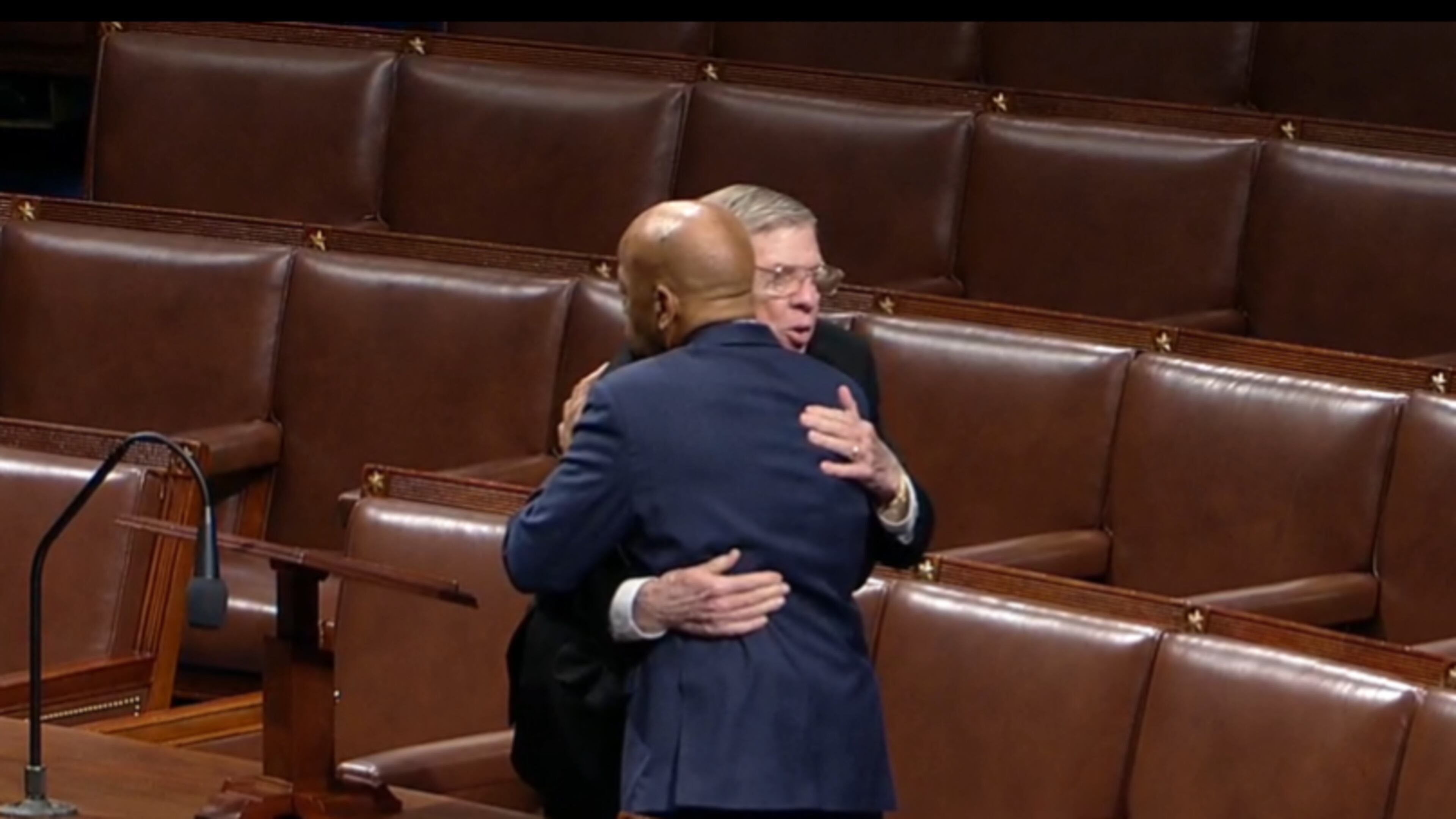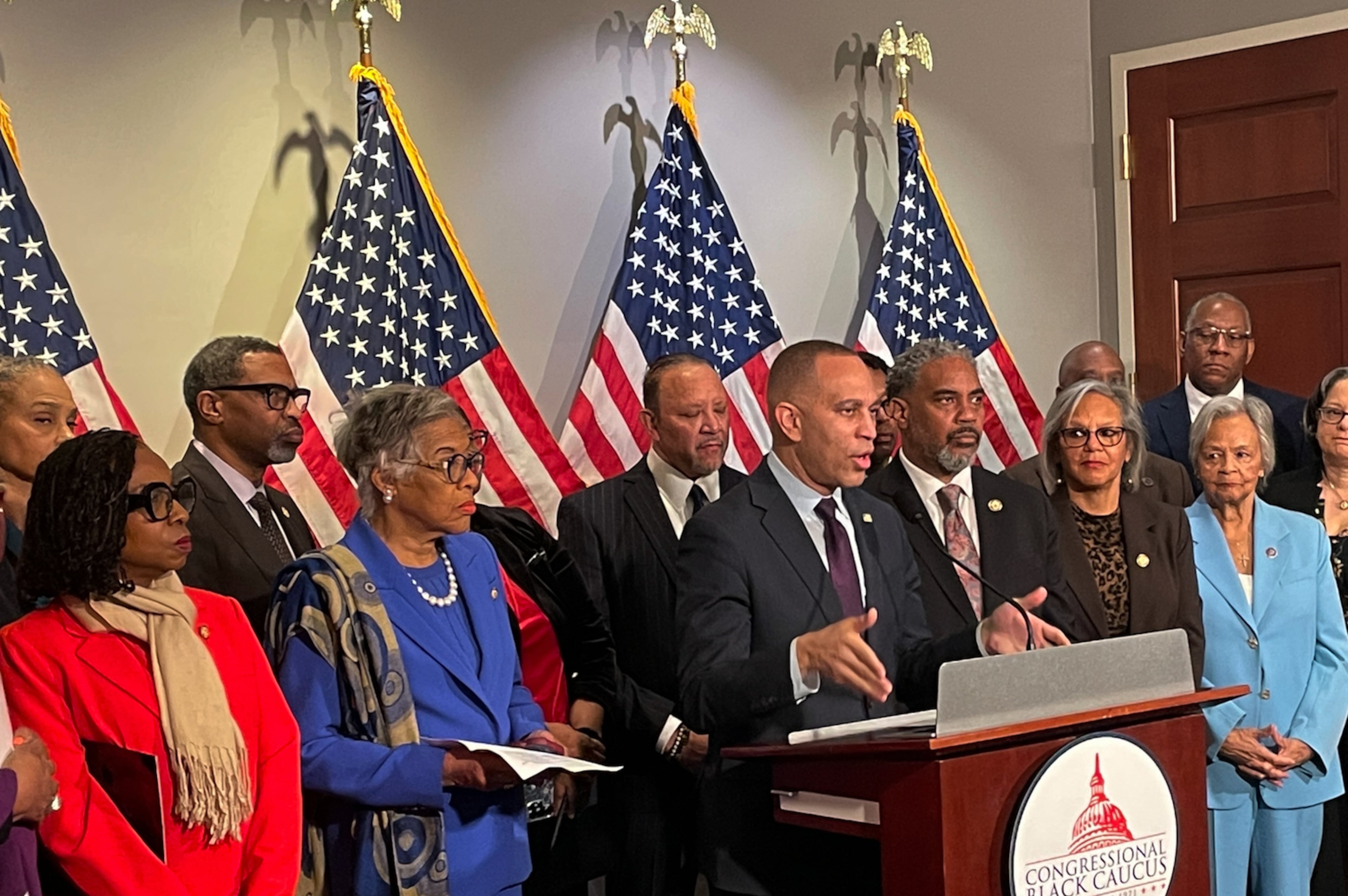Opinion: The ‘Isakson way’ still points us toward political civility

A fractious Congress has passed stopgap funding for the federal government. The deal is in place through November 17. But Americans everywhere should be prepared for renewed rancor well before that date. Particularly in the U.S. House, polarization and confrontation are ascendant. Even House Speaker Kevin McCarthy wondered aloud last week whether some of his colleagues wanted to “burn the whole place down.”
During this brief pause before the next shutdown showdown, it’s timely to consider a very different – some might say lost – approach to governing and problem-solving. It’s the politics of civility practiced by the late U.S. Sen. Johnny Isakson.
According to Vocabulary.com, political civility is derived from the Latin, civilis, “…meaning ‘relating to public life, befitting a citizen;’ in other words, being friendly and nice to everyone.”

There is plenty of room to improve that definition, particularly when applied to Johnny Isakson.
The senator was a public citizen of the first order. But Isakson’s friendliness – authentic as it was – was also purposeful. Before he joined Congress, Isakson was a successful realtor and he likened deal-making in Washington to bringing together willing buyers and willing sellers. It helped that this particular dealmaker instilled trust and showed respect. Isakson’s political style is the main object of attention at the first-ever Isakson Symposium on Political Civility taking place at the University of Georgia on November 10. It is an occasion for people everywhere to reflect on Isakson’s radically commonsense approach to problem-solving and public leadership.
Isakson famously said, “There are two types of people in this world: friends and future friends.” Those words evince Isakson’s decency. His comity. His friendship. Sincerely, he was all these things. But let’s also recognize what happens when decency, comity and friendship are put to work for ordinary citizens. Legislation he sponsored or co-sponsored strengthened health care and housing assistance for American veterans. It reduced barriers to U.S. trade and investment in Africa. It enabled sexual assault awareness training for Peace Corps Volunteers. It imposed penalties on operators of unsafe mines.
His partners in these valuable legislative feats? Republicans Orrin Hatch, Marco Rubio and Lamar Alexander. But also, Democrats Chris Coons, Jon Tester, Ted Kennedy and Patty Murray. Make no mistake: Isakson’s conservative political convictions ran deep. But his commitment to Medicare was no less steadfast. So was his belief in America as a beacon of democracy for developing nations. And he cared about safe workplaces for all Americans.
Principled leadership was more important to Isakson than being the nice guy. In fact, there were times when the senator left agreeability at the door. These were moments of courage. When a powerful leader — even more powerful than Isakson — took potshots at late senator and military hero John McCain, Isakson called him out on it. Was he nice? No. He was right.
In early 2019, having recently endured a 35-day federal government shutdown, an exasperated Isakson urged his Senate colleagues to think twice before declaring another shutdown. Isakson fumed, “I’m going to try and keep the people at work and solve the problem, not play politics with the people’s jobs, their payroll and the country.”
Isakson had essentially zero interest in receiving credit for his accomplishments. This was no small source of frustration to his friends and even some of his staffers. For Isakson, accolades weren’t the point. Good outcomes for Georgians and Americans were the key quest. Putting the country first and letting others grab the media stage were also consistent with his religious upbringing. Christian faith informed his sense of shared humanity, too.
Which brings us back to civilis – the public citizen who belongs to a community of shared interests, regardless of party, ideology or upbringing. Instead of Johnny Isakson the Kind, let’s remember Johnny Isakson the Exemplar for public leaders across Georgia, the nation and the world.
The late U.S. Rep. John Lewis, D-Atlanta, urged likewise in a final tribute to Isakson from the House floor in the fall of 2019. He called Isakson a bridge-builder and a brother. Following his remarks, Lewis and Isakson, both in frail health, met and embraced on the center axis of the House chamber. Visibly moved, the next speaker, U.S. Rep. Austin Scott, R-Tifton, remarked, “… I wish all of America could see that. What a wonderful sight … representative of the days of the past and the days to come and how we should work together.”
Amen, Mr. Scott.
Matthew Auer is dean of the University of Georgia’s School of Public and International Affairs.


